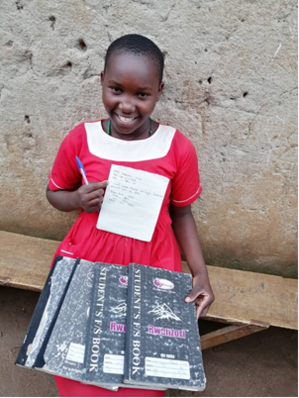This month (and to our delight!), Opportunity International UK was selected as the partner charity for Oxford Forum for International Development's annual conference - one of the largest student-led development conferences in Europe.
Since 2008, OxFID has facilitated conversation and collaboration between students, researchers and professionals in the international development sector. The conference inspires engagement across a number of disciplines and fosters important dialogue to address major global issues.
This year, the theme ‘Remapping Change: Where do we go from here?’ focussed on the effects of the pandemic, the climate emergency and rising inequality within our society. Members of Opportunity took part in panel discussions and expertly delivered insightful presentations.
If you missed the conference, we’ve compiled the key points from Opportunity for you to catch up on:
Financial Inclusion & Technology
Two core areas of Opportunity are microfinance and technological innovation. Sally Vicaria (Director of International Programmes), Mandy Burrows (Senior Programme Manager) and Rosa Wang (Global Director of Digital Financial Services) delivered two excellent presentations introducing these areas.
Watch videos of their presentations
Key points:
- Of the world’s 28 poorest countries, 27 are in sub-Saharan Africa where extreme poverty is rife. Having access to financial services is a critical step towards breaking generational poverty and building sustainable livelihoods. It allows individuals to save for their family needs, borrow to finance their businesses and be prepared for emergencies.
- Opportunity increases financial inclusion through low-cost branches in remote areas, agent banking (permitting clients to bank in a variety of easy-to-reach locations) offering access to mobile phone banking and providing clients with banking access anywhere.
Technology has changed the lives of many Opportunity International clients. Many people living in poverty, are non-literate and living without electricity or running water. Through biometrics, data analytics and advanced mobile technologies, clients have access to financial and other services, tailored to their lives.

Education
Education is central to Opportunity International and our Girls’ Education Challenge (GEC) project has successfully helped 56,000 Ugandan children stay in school for longer than they would have done.
Mandy Burrows, manager of the GEC project, featured on OxFID’s ‘Education in Crises’ panel. The discussion centred on the effect of COVID-19 on education, with a particular emphasis on vulnerable children living in poverty.
Key points:
- Every child has a right to an education, but this is frequently neglected in a crisis. Girls’ education is one area that has been most affected, exceptionally so because of COVID-19.
- In sub-Saharan Africa, girls are less likely to go to school than boys and, critically, stay in school. Keeping girls in school is vital. The benefits are well-documented: for every year of secondary schooling, girls will earn 25% more and will reinvest 90% of her earnings in her family and children’s education. When multiplied, this magnifies the effects and will positively impact future generations.

Unfortunately, COVID-19 isolation measures have drastically reduced the chance of girls going back to school and will certainly render the above-mentioned multiplier effect, non-existent. In a study conducted in Pakistan by our EduFinance team, 63% of parents did not plan to send their daughters back to school after restriction measures are lifted, versus the 94% of parents that would send their sons back. Financial, safeguarding and concerns around the lack of appropriate wash facilities, all contributed to this figure.
Resilience
Sam Bickersteth (CEO of Opportunity) addressed the shifting response to climate change on OxFID’s ‘COVID and Climate Change panel’ and highlighted Opportunity’s resilience approach to assist its clients in an emergency.
Key points:
- All financial decisions should take climate and nature risk into consideration. This is essential to economic, social and environmental sustainability and we require a ‘blended finance’ approach to achieve our climate goals.
- Opportunity International plays a key part in assisting our clients in emergencies. With access to financial services, one of our resilient clients – Ana – was able to open a secure savings account prior to Cyclone Idai making landfall in March 2019. Despite losing her home, her livelihood and hope, her savings cushioned against the devastating effects of the cyclone, giving her the means to feed her family and apply for a loan to rebuild her farm.

To hear more about how Opportunity International’s work integrates with building resilience against climate change, listen to a podcast featuring Sam and Senior Programme Manager, Lydia here.
Opportunity International was thrilled to contribute to OxFID 2021 to detail our important work, even more crucial now in light of the pandemic, and to address the global issues that face our society today.
We take this opportunity to thank the OxFID committee for inviting us as their partner charity, and for raising nearly £600 towards transforming the lives of many of our clients. Thank you OxFID, until next year…